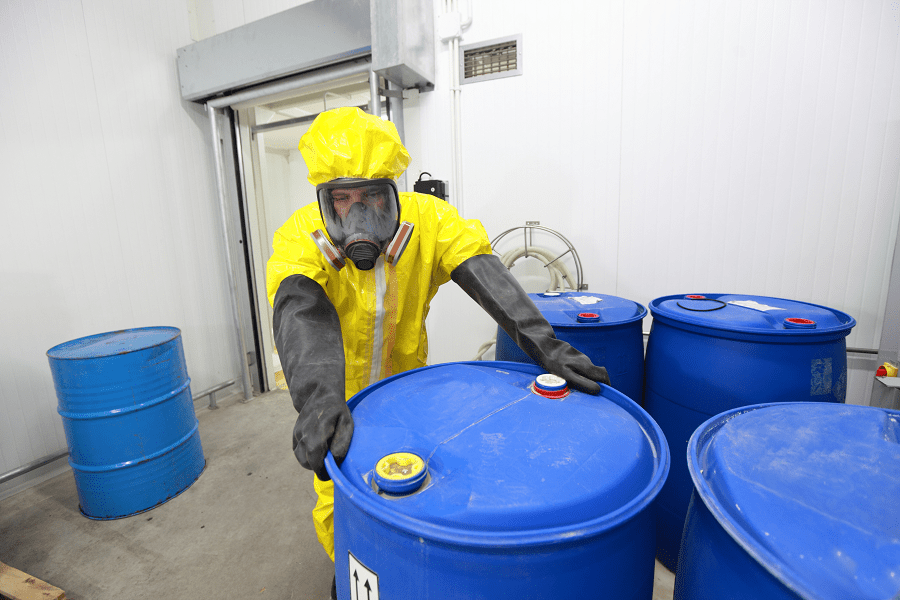When we think of a “safe” parts washer solvent, we often conceive of the solvent regarding its safety for human use, particularly use by workers who apply the solvent in industrial settings. However, while human safety should be a primary concern when choosing a parts washing solvent, there are three others areas of concern that quantify safety in additional ways; namely, the impact of the solvent concerning business productivity, the environment, and the law.
- Business Productivity
The impact of a parts washer solvent on workers’ health is inextricably tied to business productivity in an industrial environment where manpower is crucial for work processes. Many solvents that emit hazardous air pollutants (HAPs) are scientifically proven to cause negative short-term and long-term health effects, which take employees off of the work floor — if only temporarily — and complicate maintaining business productivity, much less increasing it.
High-level personal protective equipment (PPE) and special air filtration systems can help mitigate the risk. But purchasing and maintaining these resources can be quite costly in itself. Implementing a safe parts washer solvent that requires low-level PPE — or no PPE, as the case may be — and doesn’t emit hazardous air pollutants (HAPs) that are found on the Environmental Protection Agency’s (EPA’s) list of banned and regulated chemicals is the preferred solution.
- Environmental Impact
A truly safe parts washer solvent is also one that doesn’t expose companies and organizations to legal liabilities for violating emissions caps for reportable chemicals. Some users find themselves in a catch-22 situation with the washer solvent they use: The solvent works perfectly for the cleaning operation, but it can’t be used insufficient quantities without incurring fines. The solution is bad news for the environment and, by extension, bad for company finances.
- Legal Implications
Incurring EPA enforced fines for emissions violations is one way that chemically unsafe parts cleaner legally jeopardizes the financial well-being of the end user. A second way that the user is placed in financial jeopardy is through the occurrence of workers compensation claims and chemical injury lawsuits that are brought in the wake of exposure to the offending element.
If chemical injury lawsuits are brought, damage to the user’s public image could cause additional financial fallout by complicating business relationships with customers and partners. Today, green business solutions are in, and solutions that jeopardize human health and the environment are out. Now more than ever, the eco friendliness of a company’s practices impact business.
Need a Safe Parts Washer Solvent?
If you use a parts washer solvent that could cause problems for your outfit in the ways above, the solvent isn’t the safest choice for the health of workers, the state of the environment, or company finances — all of which interconnect. If you use a solvent that poses these risks, Ecolink can provide a stock or custom parts washer solvent that mitigates or eliminates the problems.
To get started on implementing a safe parts washer solvent, please call us today at (800) 563-1305, or contact us here. We look forward to hearing from you!















